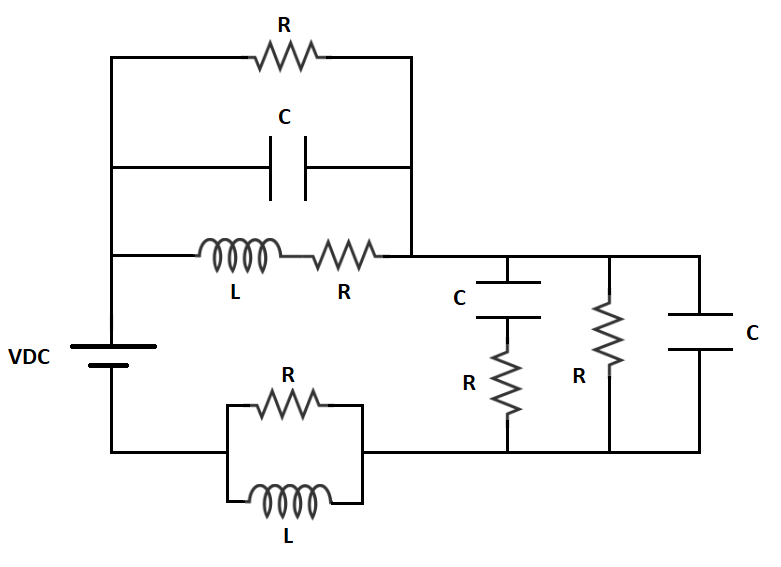RLC at DC

A DC voltage source supplies a network of resistors, capacitors, and inductors, as shown above. All resistances are , all inductances are , and all capacitances are . The DC source voltage is .
If the circuit is in DC steady-state, how much current (in amps) flows through the source?
The answer is 6.667.
This section requires Javascript.
You are seeing this because something didn't load right. We suggest you, (a) try
refreshing the page, (b) enabling javascript if it is disabled on your browser and,
finally, (c)
loading the
non-javascript version of this page
. We're sorry about the hassle.
All you have to remember is that in steady state, RC blocks act as open circuits and RL blocks act as short circuits.
Therefore, no current will flow through C (infinite resistance) and L will have zero resistance (a straight normal wire). So in the parallel RL circuit, the current will not flow through R at all as current has the tendency to follow the path inversely proportional to impedance.
V = DC Voltage, i = DC Current
Hence, V = i x [ R + R R . R + R]
Or, 10 = 2 3 . i ; Given R = 1 Ohm
Or, i = 6.67 A